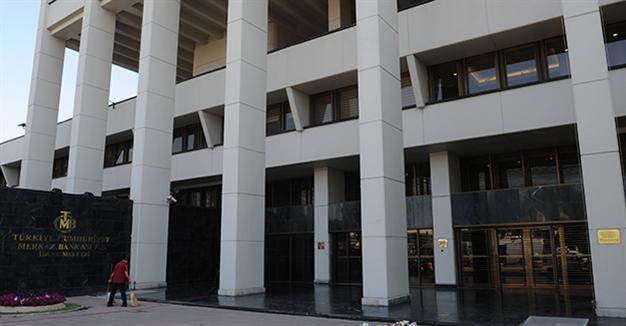Fed up with volatile prices, Turkish government steps in to help Central Bank
ANKARA - Reuters
 The Turkish government plans to take a more active role in fighting inflation and will attempt to tame volatile food prices, senior economic officials said, moves designed to give the Central Bank more leeway for monetary easing.
The Turkish government plans to take a more active role in fighting inflation and will attempt to tame volatile food prices, senior economic officials said, moves designed to give the Central Bank more leeway for monetary easing. The change, the officials say, reflects the government’s acknowledgment that the Central Bank has limited ability to curb price increases.
President Recep Tayyip Erdoğan regularly urges the bank to lower interest rates to spur consumer spending and boost a flagging economy.
Last week, the bank took a rare pause in its easing cycle, leaving rates on hold and citing the impact of a weaker Turkish Lira on the inflation outlook. It had cut rates at the seven previous meetings and analysts expect it may do so again once inflation is under control.
The government is now focused on ways to keep a lid on food prices, officials say, or at least lessen their impact on inflation. The aim is to shave 1 percentage point off headline inflation.
“A reduction of 1 percentage point in inflation for 2017 is being targeted through measures in the food supply chain,” one senior economic official told Reuters.
But that may be easier said than done. The agricultural supply chain is rife with middlemen and hindered by an arcane bureaucracy. Farmers’ costs include imposts, pesticide tests and quality certification, all of which are usually handled by informal middlemen, driving up costs.
In some cases, produce is sold at four or five times its actual cost, none of which goes to producers, Customs and Trade Minister Bülent Tüfenkci has said.
Central Bank Governor Murat Çetinkaya said last month that reaching price stability solely through monetary policy tools could be costly and attempting to control food prices with interest rates could cause unwanted fluctuations in the economy.
Economists say agriculture needs a sweeping overhaul, pointing to outdated technology, a lack of large-scale farming and poor planning for harvests.
Under a new law due to go into effect before the start of next year, the government will require each link in the food supply chain to disclose the price of products bought and sold. The government will then take action when it suspects unfair pricing.
It will also subsidize the cost of transporting cold food, to help reduce costs from lost products. The government has reformed its food committee as well, in an effort to prevent an “unfair rise” in food inflation.
The measures are expected to reduce vegetable and fruit prices by 10 to 20 percent, Tüfenkci, the customs and trade minister, said last month.
Food prices saw drastic swings this year, ranging from 1 percent to double-digit percentage increases. That caused headline inflation to suffer similar moves.
Inflation basket
The government also expects consumer inflation to benefit from a re-weighting of food in the inflation basket used by the Turkish Statistical Institute (TÜİK), which releases the monthly data, another senior economic official said.
In an effort being carried out jointly with the European Union’s statistics body, Turkey is examining whether to change the 23.68 percent weighting of food in the consumer price index.
Officials said a re-weighting may be needed to reflect the impact of this year’s 30 percent increase in the minimum wage, since low-income households spend more of their wages on food.
Economy Minister Nihat Zeybekci has said food’s weighting in the inflation basket would drop to below 20 percent, according to the newspaper Habertürk. That sparked some concern changing the make-up of the basket was just a way to fiddle with inflation numbers. Other ministers say there would be no government interference.
“The weights in the consumer price index are determined by household polls. An intervention is not the case, and will never be,” Deputy Prime Minister Mehmet Şimşek said on Twitter.
Turkey’s medium-term economic program, announced earlier this month, forecast consumer price inflation of 7.5 percent at the end of this year and 6.5 percent in 2017, raising the forecast for next year from a previous 6.0 percent.
Turkey will release its inflation report, which is largely based on the medium-term program, on Oct. 27.
















